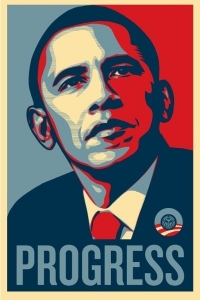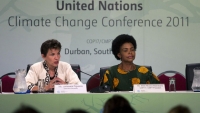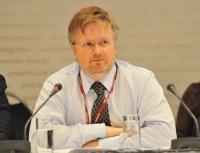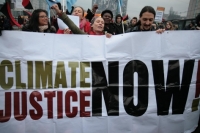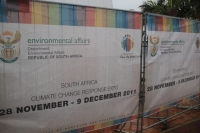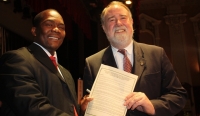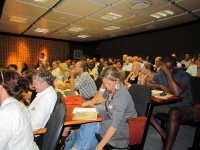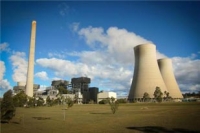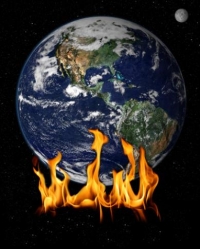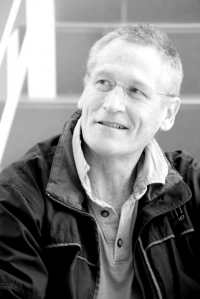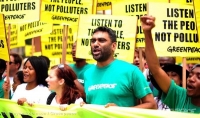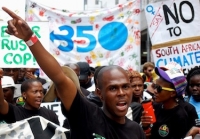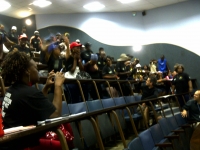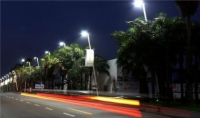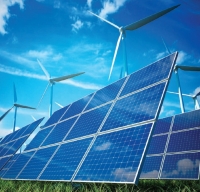"President Obama committed to a 2°C global goal in Copenhagen in 2009 and again recently in Durban. Now, immediately before an election, he is walking away from his own weak policies. This backflip with a twist would win a Gold medal at the hypocrisy Olympics. It's breathtaking."
Ministers and high-level officials from 32 countries that met informally in Bonn want to build on the strong momentum of the UN Climate Change Conference in Durban, by making sure the decisions are effectively implemented, with the curbing of greenhouse gas emissions.
South African Minister of International Relations and Cooperation, Ms. Nkoana-Mashabane, has announced the appointment of Mr. Zaheer Fakir (South Africa) and Mr. Georg Børsting (Norway) as co-Chairs of a work programme on long-term climate finance.
Decisions resulting from the UN COP17 climate summit in Durban constitute a crime against humanity, according to Climate Justice Now! a broad coalition of social movements and civil society.
At the Durban Local Government Convention, 114 Mayors and other elected local leaders representing over 950 local governments from around the world have adopted the Durban Adaptation Charter, a political commitment to strengthen local resilience to climate change.
The Durban Platform for Enhanced Action, the key outcome of the 17th Conference of Parties (COP17) to the UN Framework Convention on Climate Change (UNFCCC) in December 2011, has been dubbed by many as the platform for inaction, with the decision to find agreement by 2015 being seen as the agreement to disagree at a later date.
“Are the right people in the climate change debating room? Evidence shows climate change hugely impacts on the health and the welfare of children, but conversations in the negotiation process seem removed from this reality and finding solutions for this suffering.”
Why has green building not become standard practice for new buildings and refurbishments in South Africa?
Africa can do better than invest faith and state resources in yet another Ponzi scheme — the ‘privatisation of the air’.
In a last-minute deal reached on December 11, 2011 at the 17th session of the Conference of the Parties (COP 17) to the United Nations Framework Convention on Climate Change (UNFCCC) meeting in Durban, South Africa, governments decided to adopt a universal legal agreement on climate change as soon as possible, but not later than 2015. Work will begin on this immediately under a new group called the Ad Hoc Working Group on the Durban Platform for Enhanced Action.
They came to Durban in their hundreds, they saw, they talked, and talked, and talked, and talked but the question is did they really conquer? Notwithstanding the extra day and half and the much heralded agreement.
Waiting nine years for climate action isn’t just a delay, it’s a death sentence for communities on the front lines of the climate crisis. Yet that appears to be exactly what the US representatives to Cop17 are pushing: delaying climate change action until 2020.
As the first week of negotiations at the so-called “African COP 17” drew to an end and the final week begins, it is perhaps a poignant time to ask: What could possibly be meant by calling COP 17 “an African” COP?
On Monday the 5th of December MediaClimate held a seminar titled “Media meets climate: A problem or a solution for social movements” at the Centre for Civil Society, University of KwaZulu-Natal, Howard campus.
Friday, the 2nd of December Earth Life Africa held an anti-coal seminar at the Centre for Civil Society, University of KwaZulu-Natal (Howard campus).
New street lighting in Durban represents good luminance and uniformity in LED lighting; will create a more livable city with safer roads, increased security and a comfortable outdoor environment.
South Africa and European Union nations earlier this week announced a massive renewable energy initative, and this was launched in Durban on Wednesday. The South African Renewables Initiative (SARi) is in a bid to scale up and secure long-term funding to enable the growth of the renewable energy industry in South Africa.








